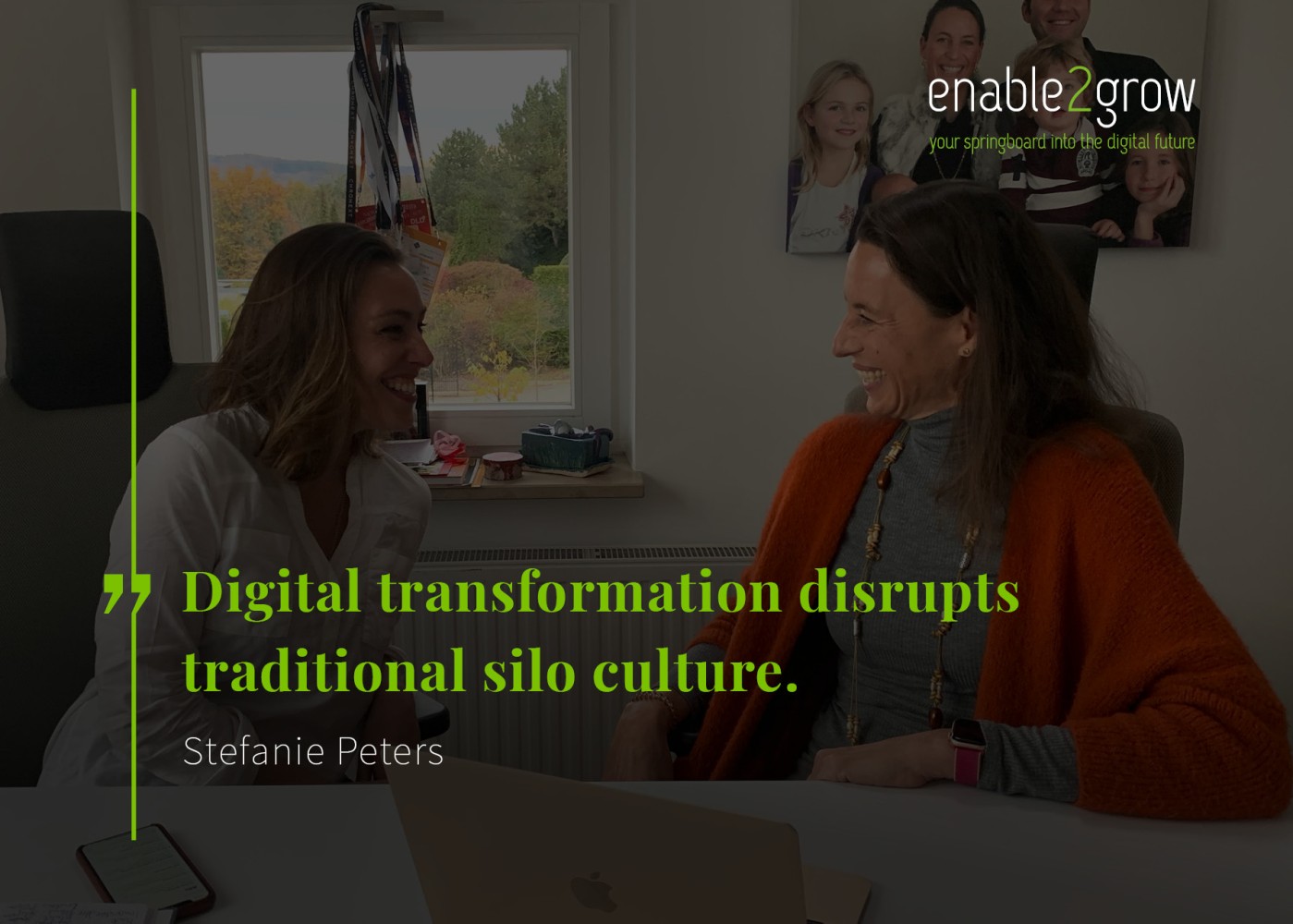The story is often the same. Companies start with an innovative first product.
As they grow into successful stable businesses, they lose the ability to innovate. But there are some companies that keep innovating, and thereby sustain their success. What is the difference? Companies with an open culture continue to reinvent themselves and their successes. These organizations are open to new ideas, favor transparency and support taking good risks. All three are success factors in any digital transformation.
Open Culture and Digital Transformation
Most of us know how important a good business culture is for succeeding in challenging business situations. The research backs this up as well, citing “cultural issues” and “changing the culture and ways of working” as some of the biggest challenges companies face in transformations. Ironically, when implementing digital strategies, the culture of a company often recedes into the background. Too often the focus is placed on tools, timelines and technology. But to achieve the challenging goals of digital transformation, culture needs to be in the foreground. Digital transformation requires establishing a new Growth Mindset that is open to change and embodies the values and vision of the company.
What we can learn from Startups about Open Culture
For examples of Open Culture we can look to startups. Startup employees are known for being extremely motivated. They identify deeply with the culture and values of their company because they know the purpose and vision they are building toward. Thanks to an open culture, they feel engaged and as valuable contributors to the company’s progress. To create an open culture that enables continuous change, leaders in companies have to trust their employees, allow them to take on responsibility, and enable them to use their strengths.
Build trust by communicating often and openly
Our experience has shown that continuous communication on all levels is crucial for employee satisfaction and motivation. It builds trust, which is necessary for taking steps toward change. Transparent communication, open dialogue and respect for all contributors builds trust. Open dialogue has a positive effect on all areas of a company, particularly when it leads to a transfer of knowledge across all departments. This knowledge transfer promotes holistic, cross-functional thinking and creativity, but also gives every employee the feeling of being heard and respected, in short, of being an important piece of the puzzle.
Executives model how to decide, instead of how to control
An open culture is a prerequisite for fast, agile and customer-oriented action. This is best achieved by supporting independent thinking and co-operation throughout all departments, and also by involving employees in the change and letting them contribute to the change process. Digital transformation disrupts traditional silo culture. The executive team must be the role models for open culture. They set the example by living the desired culture, communicating the vision, and accelerating progress by trusting their employees to make decisions on their own.

Netflix and fast decision-making
One well-known company that embraces an open culture is Netflix. There they call it leading with “context, not controls.” Erin Meyer, Senior Affiliate Professor of Organisational Behaviour at INSEAD, co-authored a book describing their culture. She explains the ogranization is designed as an inverted pyramid of more traditional hierarchical decision making. In the traditional organization big decisions happen at the top, where often the context and understanding of consequences is missing. But at Netflix the important decisions are made by lower-level managers who have the knowledge and context to make those choices.
“Think of a tree. [The CEO is] at the root, and he’s talking about the goals and future direction of the organisation, where future income will be coming from. And then at the next level, the next VP is setting more context for his organisation. The director, more context for her employees. Up until you get to the lower-level managers, who are really the big decision makers in the organisation.”
Meyer explains why this is faster and more agile: “with a tree, with many, many branches, you can make lots of decisions all at once. And there is a much faster growth that comes with that.”
Celebrate positive outcomes
Based on our experience, we know that communicating the positive outcomes builds culture and courage to change. This includes small wins, like the implementation of a work process, and big ones too, like achieving a major milestone in the transformation plan. The company culture evolves automatically with every small step and success, which convinces even the biggest skeptics.
A company that promotes a culture of cross-functional teams, flat hierarchies, transparency and diversity creates precisely this sense of unity that characterizes the startup scene. In this way, the entire corporate culture can be gradually transformed into an open, dialogue-ready communication culture.
For more on Open Culture and Digital Transformation send me a DM or download the Digital Fitness White Paper here.
